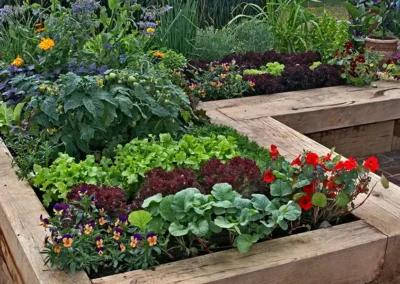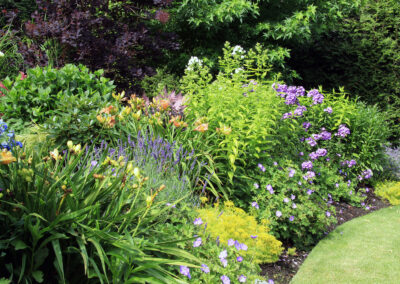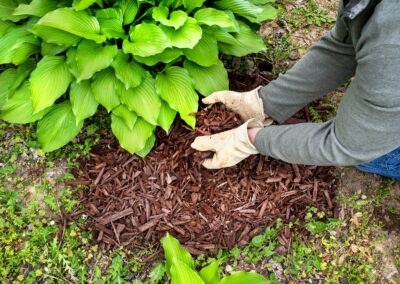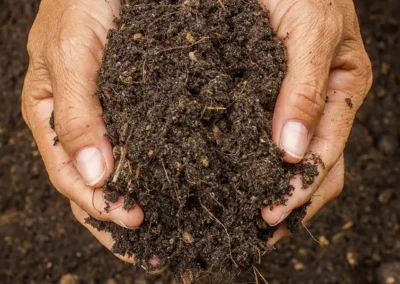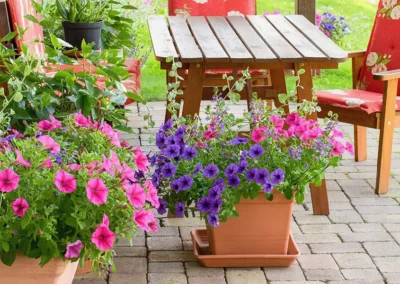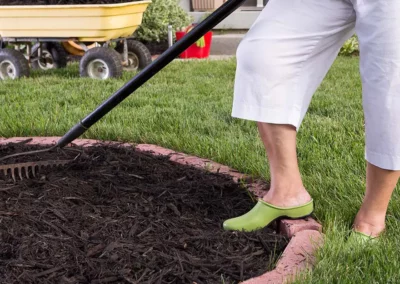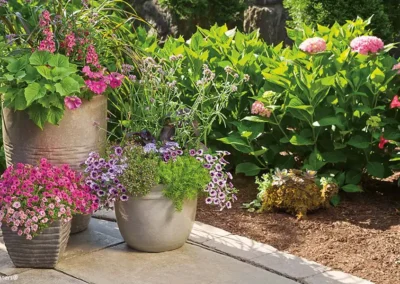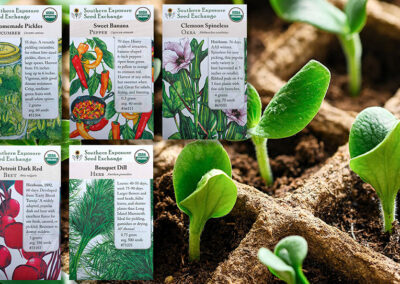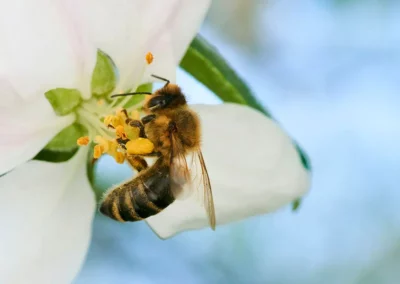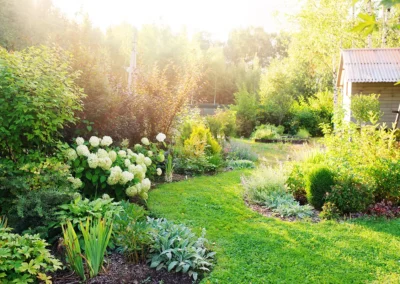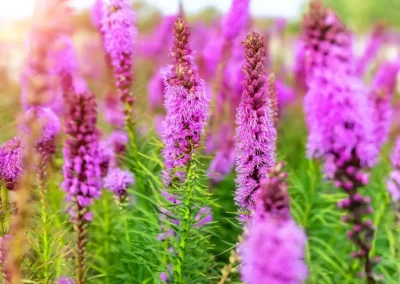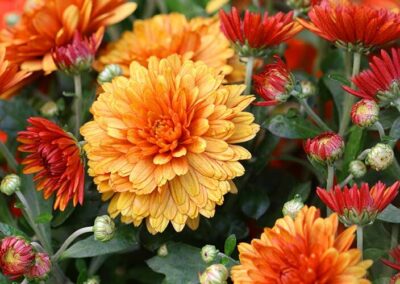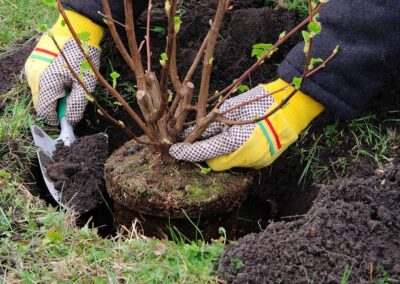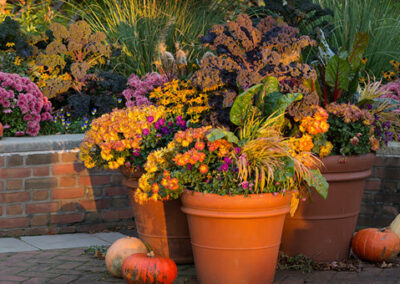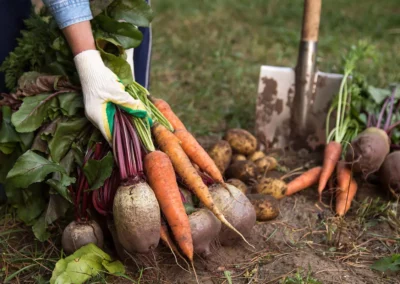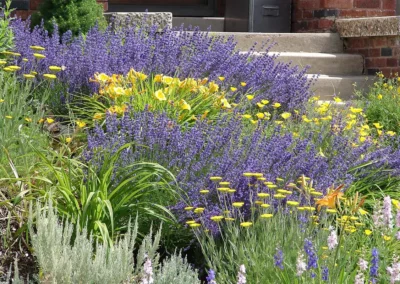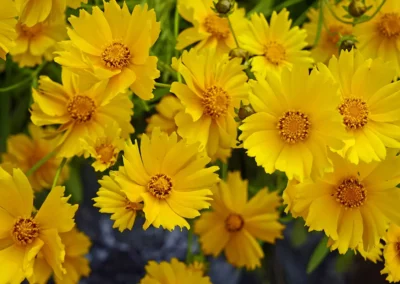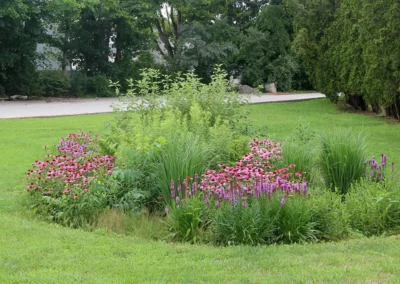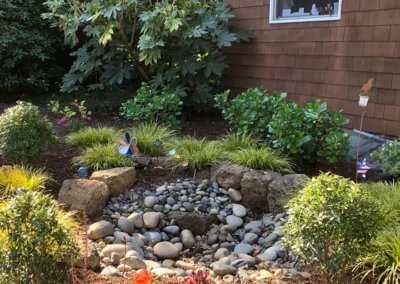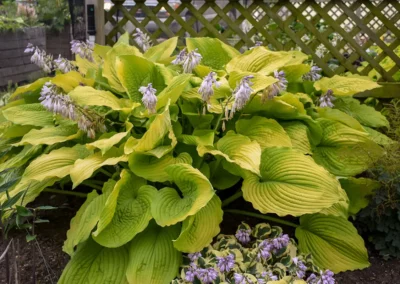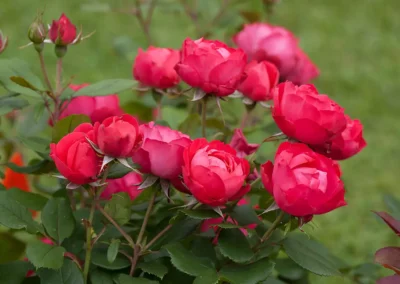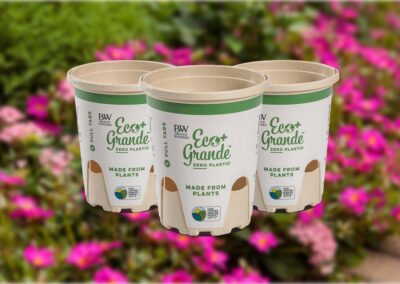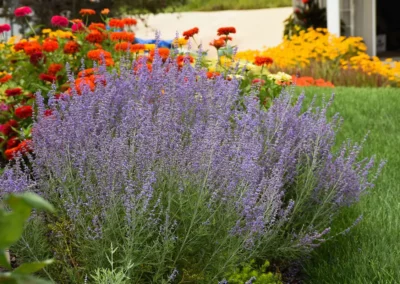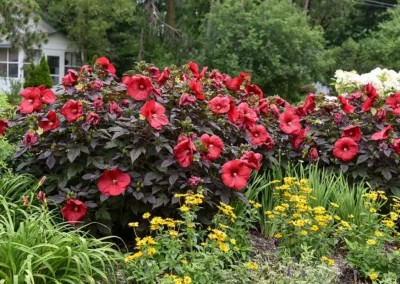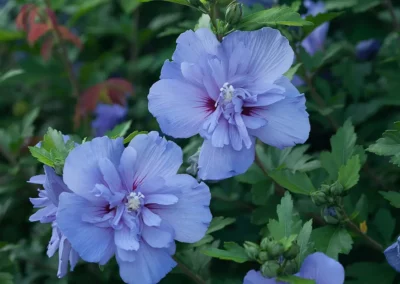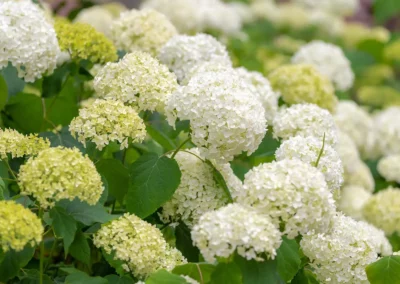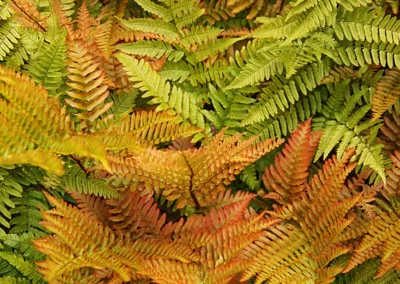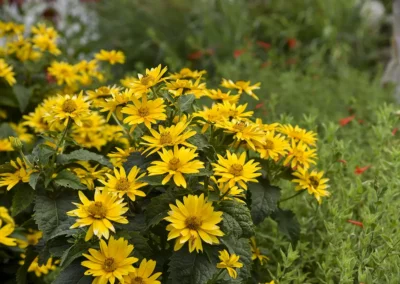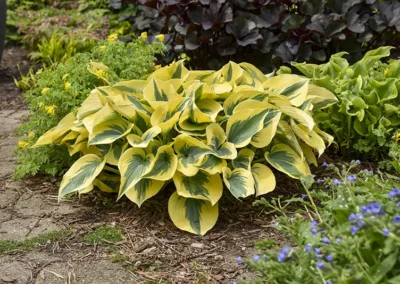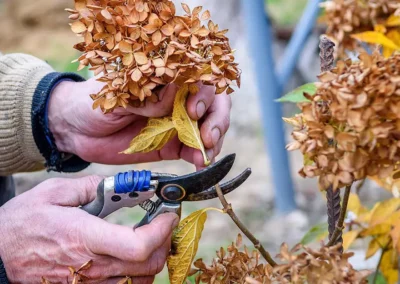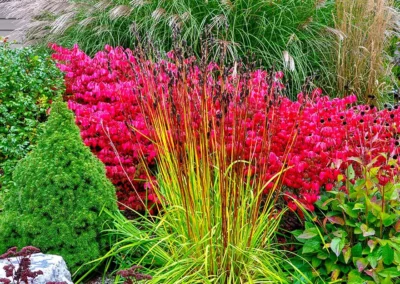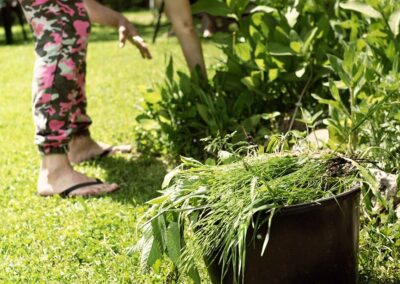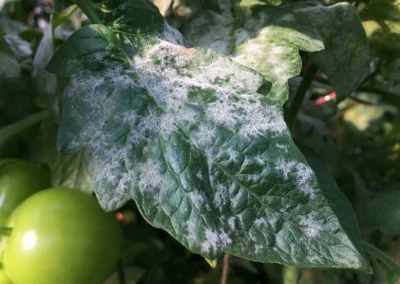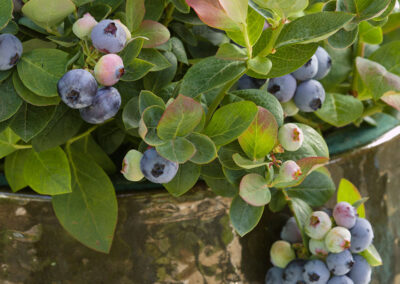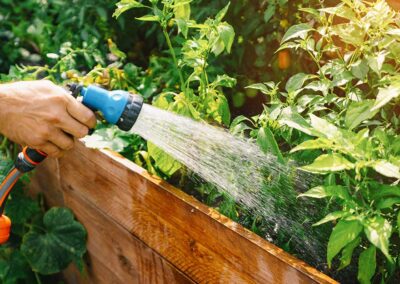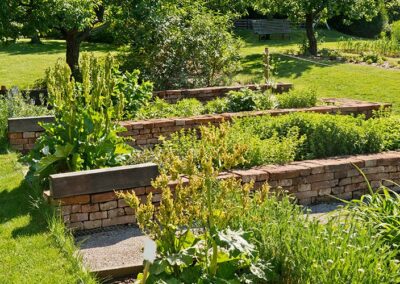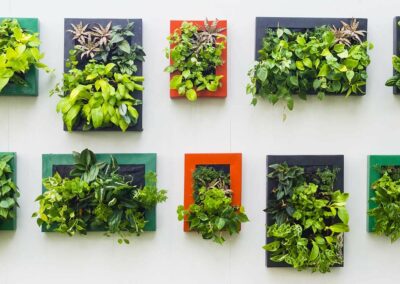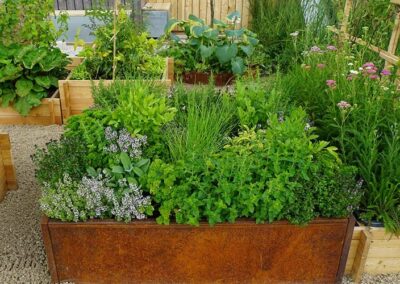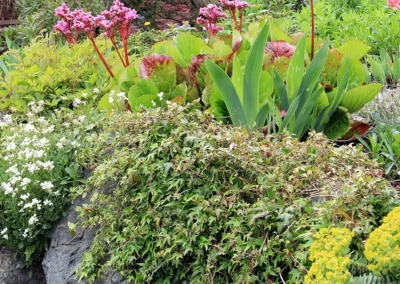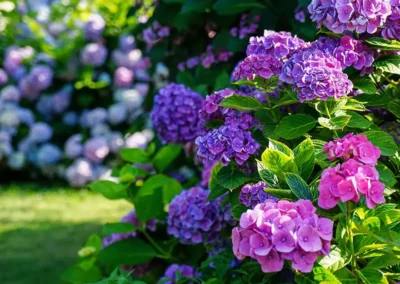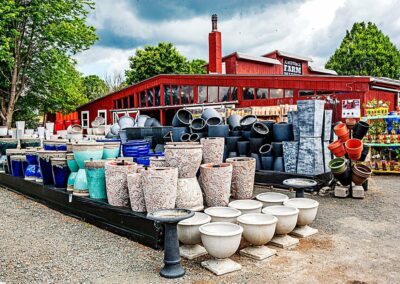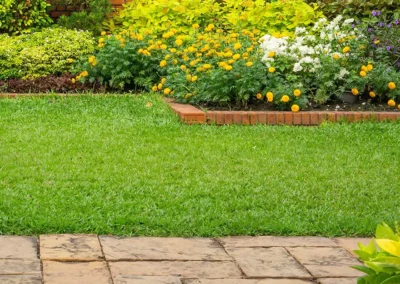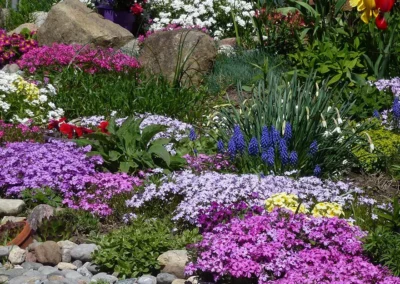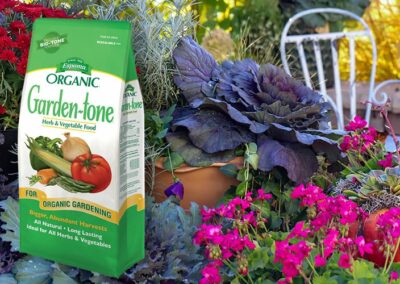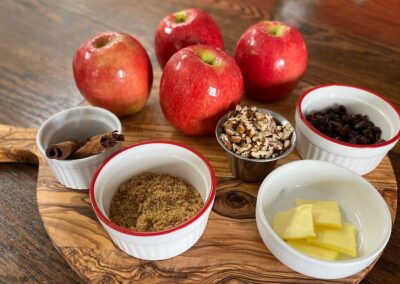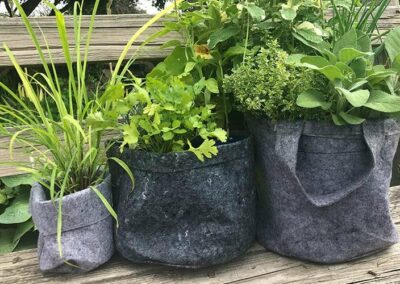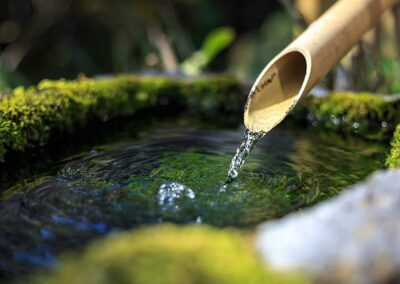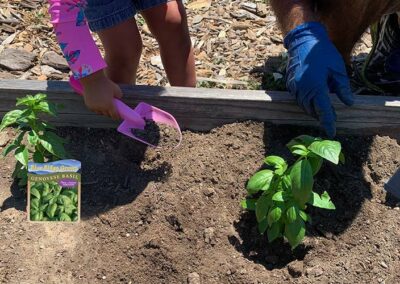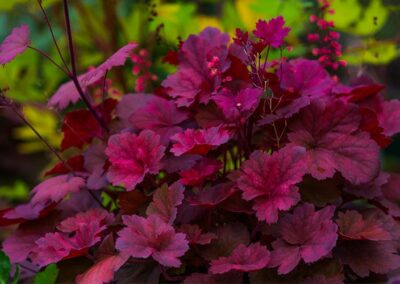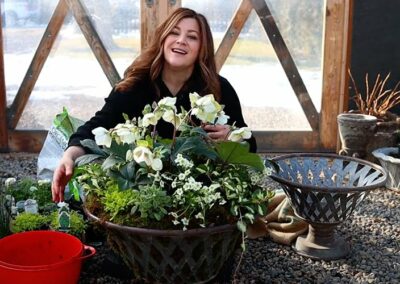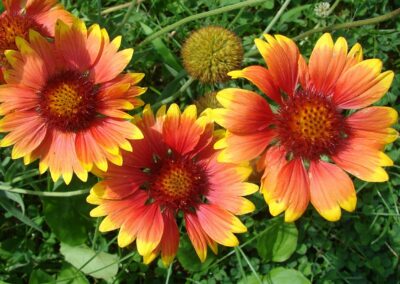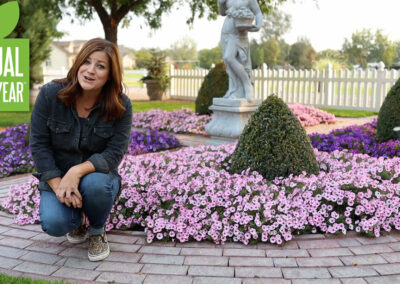There’s something truly magical about stepping outside, snipping a few fragrant herbs, and tossing them straight into your cooking pot or teacup. Growing your own herbs is not only rewarding and cost-effective, but also surprisingly easy—even for beginner gardeners! Whether you’re dreaming of fresh basil for pasta, soothing mint tea, or rosemary-infused roasted potatoes, an herb garden brings freshness, flavor, and wellness right to your doorstep.
At the Garden Center, we believe gardening should feel joyful and approachable, and that’s especially true when it comes to herbs. Keep reading… We’ll walk you through how to grow some of the best culinary and medicinal herbs for zone 7b, how to care for them, and even share a delicious, herb-inspired recipe to try at home.
Why Grow Herbs at Home?
Herbs are some of the most forgiving, beginner-friendly plants you can grow. They don’t need much space, they thrive in containers or raised beds, and most are naturally pest-resistant. Plus, herbs can be both culinary powerhouses and natural remedies—perfect for anyone looking to enhance their meals and support their health with homegrown goodness.
Here are just a few reasons to love growing herbs:
- Instant flavor boost for meals without added salt or sugar
- Aromatic beauty for gardens, patios, and kitchen windowsills
- Natural remedies with time-tested uses for digestion, headaches, and stress relief
- Pollinator magnets that support bees, butterflies, and other beneficial insects
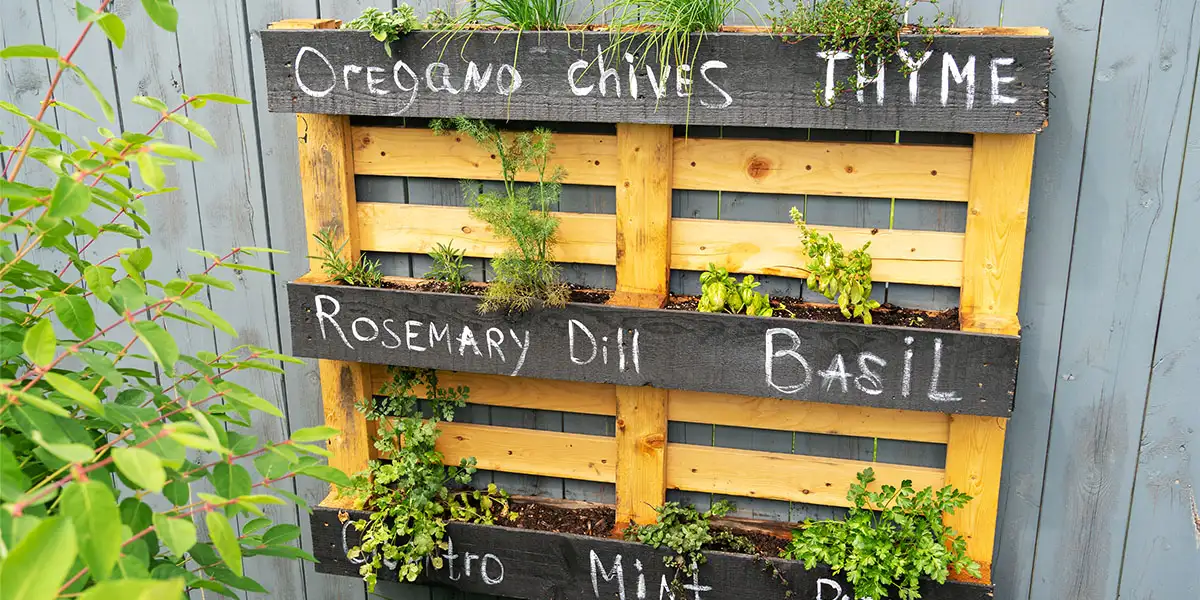
Getting Started in Zone 7b
Zone 7b, which includes much of Northern Virginia, has a relatively mild climate with winter lows between 5°F and 10°F. That makes it ideal for growing a wide range of perennial and annual herbs, both indoors and out.
Herbs in zone 7b can be planted outdoors after the last frost (usually mid-April), but many can also be started inside in small pots earlier in the season for a head start. Most herbs love well-drained soil, full sun (at least six hours of sunlight), and moderate watering.
Let’s take a closer look at some of our favorite herbs for beginner gardeners…
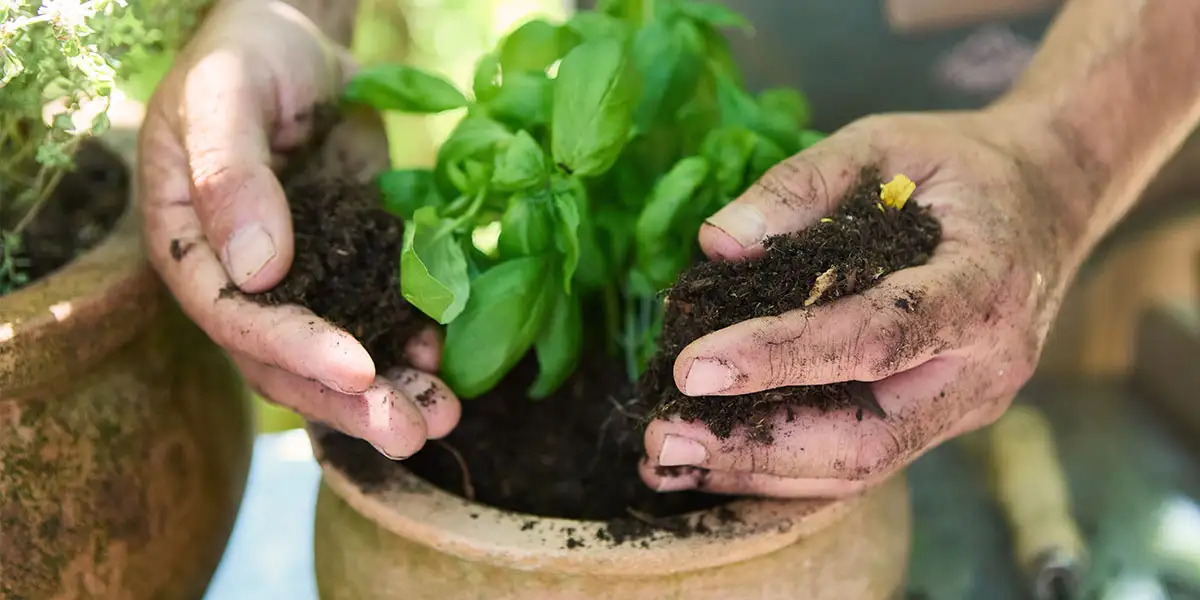
Culinary Favorites You’ll Want to Grow
🌿 Basil (Ocimum basilicum)
- Type: Annual
- Use: Culinary – fresh in salads, pesto, sauces
- Care: Basil loves warmth and sunshine! Wait until nighttime temps are consistently above 50°F before planting outside. Pinch off flower buds to encourage leafy growth, and harvest frequently.
📝 Pro Tip: Basil thrives in containers on sunny patios. Keep the soil consistently moist, but never soggy.
🌿 Rosemary (Rosmarinus officinalis)
- Type: Tender perennial (can overwinter in Zone 7b with protection)
- Use: Culinary and medicinal – perfect with roasted veggies, meats, and breads; also known to support memory and circulation
- Care: Needs well-drained soil and full sun. Once established, rosemary is drought-tolerant. You can grow it in a pot and bring it indoors during harsh winters.
📝 Fun Fact: Rosemary is said to enhance focus and memory—try adding a sprig to your desk vase!
🌿 Thyme (Thymus vulgaris)
- Type: Perennial
- Use: Culinary and medicinal – used in soups, stews, and teas for respiratory health
- Care: This low-growing herb prefers full sun and doesn’t like wet feet. Water when the soil feels dry to the touch. It’s a great groundcover, too!
📝 Garden Hack: Plant thyme near stone paths or garden borders—brushing against it releases a wonderful fragrance.
🌿 Mint (Mentha spp.)
- Type: Perennial
- Use: Teas, desserts, salads, digestive aid
- Care: Mint is vigorous (read: it can take over!). Plant it in a container to control its spread. Likes moist soil and partial sun to full sun.
📝 Kitchen Tip: Add a few leaves to lemonade or iced tea for a refreshing twist.
🌿 Oregano (Origanum vulgare)
- Type: Perennial
- Use: Italian and Greek cooking, antimicrobial teas
- Care: Drought-tolerant once established; give it full sun and prune often to keep it from getting woody.
📝 Did You Know? Oregano is rich in antioxidants and has natural antibacterial properties—perfect for wellness teas.
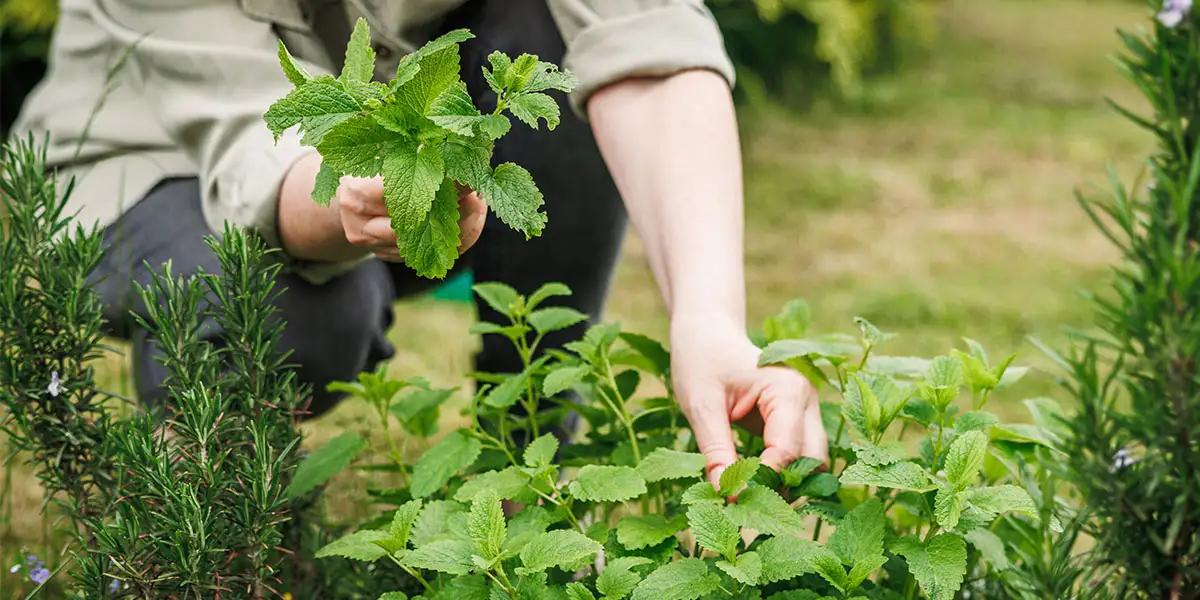
Growing Medicinal Herbs
In addition to their culinary charm, many herbs have been used for centuries to support health and well-being. Here are a few favorites that grow beautifully in zone 7b:
🌿 Lemon Balm (Melissa officinalis)
- Type: Perennial
- Use: Calming herb used in teas for stress and sleep support
- Care: Easy to grow in part to full sun; likes moist soil. Similar to mint, it can spread quickly, so containers are ideal.
🌿 Chamomile (Matricaria chamomilla)
- Type: Annual
- Use: Gentle tea for relaxation and digestion
- Care: Needs full sun and well-drained soil. Harvest flowers when they’re fully open, and dry them for tea.
🌿 Echinacea (Echinacea purpurea)
- Type: Perennial
- Use: Immune-boosting teas and tinctures
- Care: This native flower is not only beautiful, but also pollinator-friendly. Plant in full sun and give it space to grow.
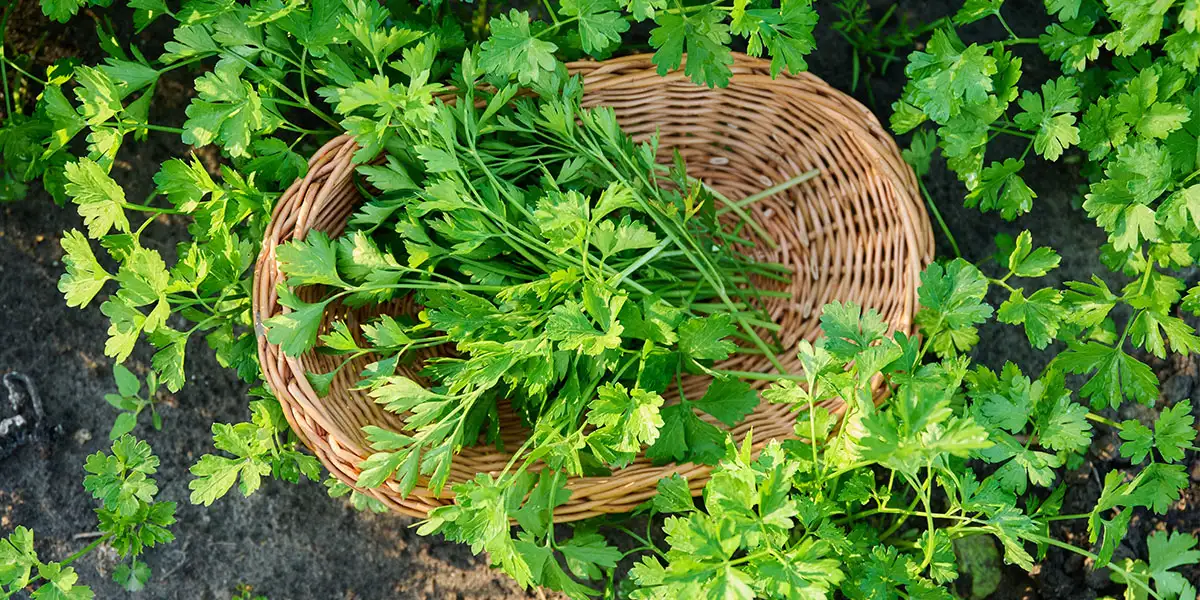
Caring for Your Herb Garden
Here are a few general care tips to help your herbs thrive:
- Soil: Use well-drained soil enriched with compost. Avoid heavy clay soils unless amended.
- Watering: Most herbs prefer to dry out a bit between waterings. Too much water can lead to root rot.
- Pruning and Harvesting: Harvest herbs regularly to encourage bushier growth. Always snip with clean scissors just above a leaf node.
- Fertilizing: A light feeding of organic fertilizer or compost tea every four to six weeks is usually enough. Too much nitrogen = fewer aromatic oils.
- Sunlight: Aim for six to eight hours of sunlight per day. South-facing spots are best.
Container herbs are perfect for patios, balconies, and kitchen windowsills—and they allow for easy control of moisture and sunlight.
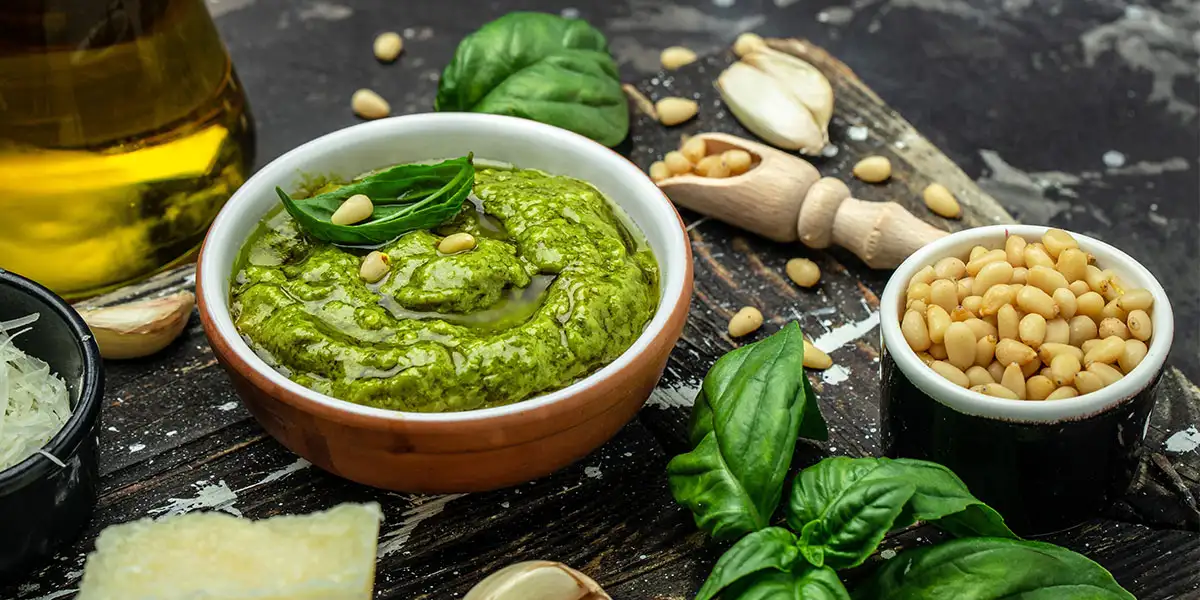
A Simple Recipe to Try: Fresh Basil Pesto
Nothing beats the taste of homemade pesto, and it only takes a handful of ingredients to make something magical.
Here’s a quick and easy recipe using your fresh basil:
🌿 Easy Garden Pesto
Ingredients:
- 2 cups fresh basil leaves (packed)
- ½ cup grated Parmesan cheese
- ½ cup olive oil
- ⅓ cup pine nuts (or walnuts)
- 2–3 garlic cloves
- Salt and pepper to taste
- Optional: a squeeze of lemon juice for brightness
Instructions:
- Toast nuts in a dry skillet until golden and fragrant (optional but delicious).
- In a food processor, pulse basil, garlic, and nuts until finely chopped.
- Slowly drizzle in olive oil while blending until smooth.
- Stir in cheese, season to taste, and enjoy!
📝 Serving ideas: Toss with pasta, spread on sandwiches, or spoon over grilled veggies.
Herbs for Every Lifestyle
Whether you’re cooking up a storm, sipping tea in the evening, or simply enjoying the aroma of fresh rosemary on your porch, herb gardening is one of the easiest and most rewarding ways to bring nature into your daily life.
And if you’re just getting started, don’t worry—you’re not alone! Visit us at Reston Farm Garden Center and let us help you pick the perfect herbs for your garden and lifestyle. We carry a wide selection of culinary and medicinal herbs suited to zone 7b, along with containers, soil, and everything else you need to grow with confidence.
Come explore our herb selection, breathe in the wonderful scents, and take home your next favorite plant. We can’t wait to grow with you!

